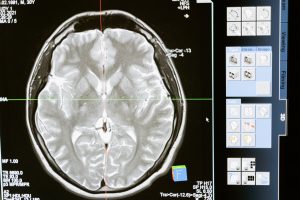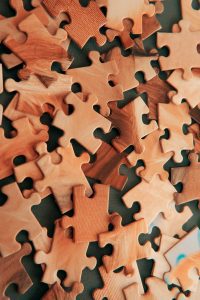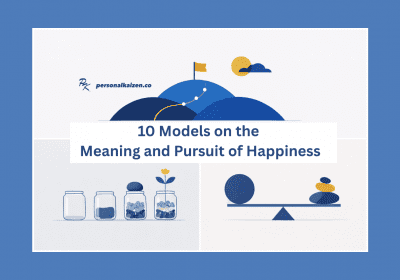Rule 2 of The Personal Kaizen 10 Rules for Life is to develop good habits around eating, exercise, learning, and meditation that will last throughout your life. Last week we shared a 20-minute-per-day physical fitness routine that will help you maintain your body. This post shares eight ways to exercise your brain.
Cognitive Health Declines as We Age

Cognitive health – the ability to think, learn, and remember – is critical to performing everyday tasks. Most of us realize that cognitive health declines as we age. But it is not clear what causes this decrease, or why some people are “cognitive super-agers” who seemingly defy this age-related decline. Scientists have correlated a decrease in brain size due to aging (and also possibly due to COVID-19). This decrease likely reduces some of our gray matter and neural pathways.
How the brain fully functions and declines due to age is still mostly unknown. However, there are some recommended methods to maintain your brain’s fitness. We will call each method a form of brain exercise, even if the suggestion is related to brain health. Note that you may already be strong in a certain area due to your work or home life.
Here are the Personal Kaizen team’s eight ways to exercise your brain.
Eight Ways to Exercise Your Brain

- Meditation: According to this study by the National Center for Complementary and Integrative Health, meditation may benefit the brain by slowing brain aging. It may also increase the brain’s ability to process information. Learn about starting a meditation practice here.
- Language puzzles: Studies have shown some positive benefits from challenging your brain with simple puzzles like Wordle, Spelling Bee, and crossword puzzles. These puzzles likely keep the parts of your brain that deal with language active.
- Logic and math puzzles: Sudoku, chess, and other logic games can be beneficial “exercise” for the cortical connections. A 2019 study of adults aged between 50 and 93 years found that those who practiced number puzzles tended to have better cognitive function. Chess has been found to improve memory and information processing speed.
- Jigsaw puzzles: Visual problem-solving games like jigsaw puzzles activate areas of the brain related to perception, working memory, and reasoning. A 2018 study found evidence that puzzles prevent brain aging.
- Practicing an Art: Drawing, painting, knitting, dancing, singing, and playing a musical instrument are all ways to keep the creative areas of the brain active. These skills can also keep motor skills sharp.
- Learning a new language, musical instrument, or skill: Learning new skills tends to become harder as we age. We can exercise our brain by forcing new neural pathways to develop as we learn new skills. I have personally been practicing new languages and studying the guitar for the past few years.
- Social Connection: The brain exercises above can all be done on your own. Socializing with others at work and home stimulates many areas of your brain and can be very beneficial. I wonder how much cognitive decline in retired adults is due to much less socializing with others.
- Physical Exercise, Proper Nutrition, and Sleep: Taking care of your body, eating the right foods (and avoiding bad inputs like drugs, smoking, and alcohol), and getting enough sleep for recovery are essential to brain health. While these are not brain exercises, giving your brain the right energy and recovery time might be more important than keeping your brain sharp and focused.
Staying Mentally Sharp

I can’t think of too many things more important than staying mentally sharp as you grow older. There are ongoing scientific studies that I believe will continue to demonstrate the benefits of using your brain in order to keep it in optimal condition. All eight ways to exercise your brain are important, but please begin with proper exercise, nutrition, and sleep.
Reach out to others in the Personal Kaizen community with other tips or recommendations for how to incorporate some or all of these exercises into your life.




